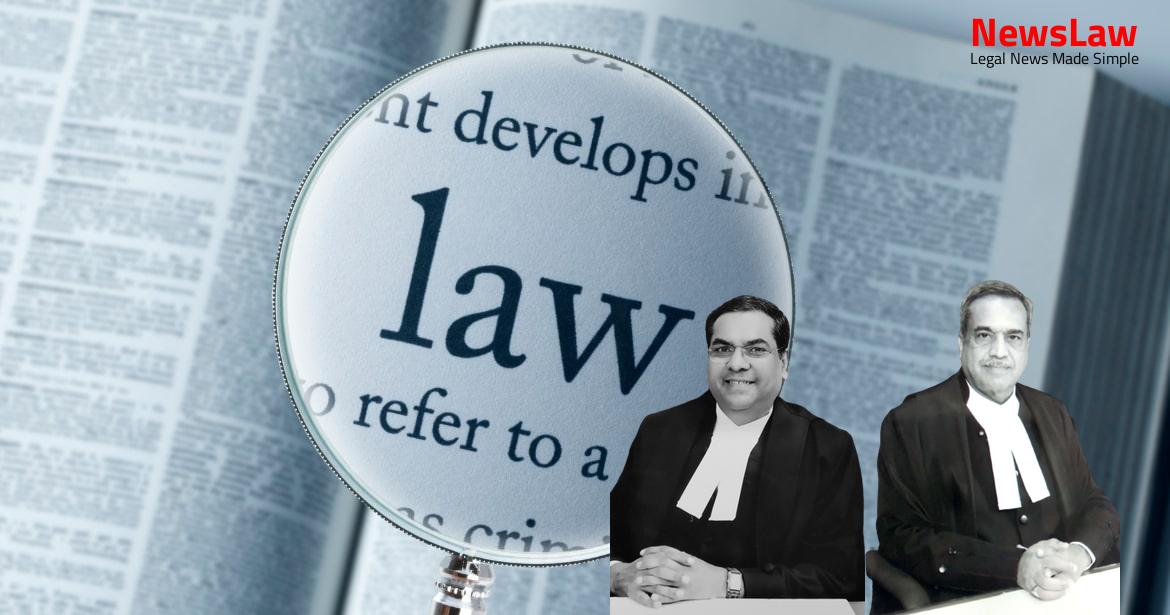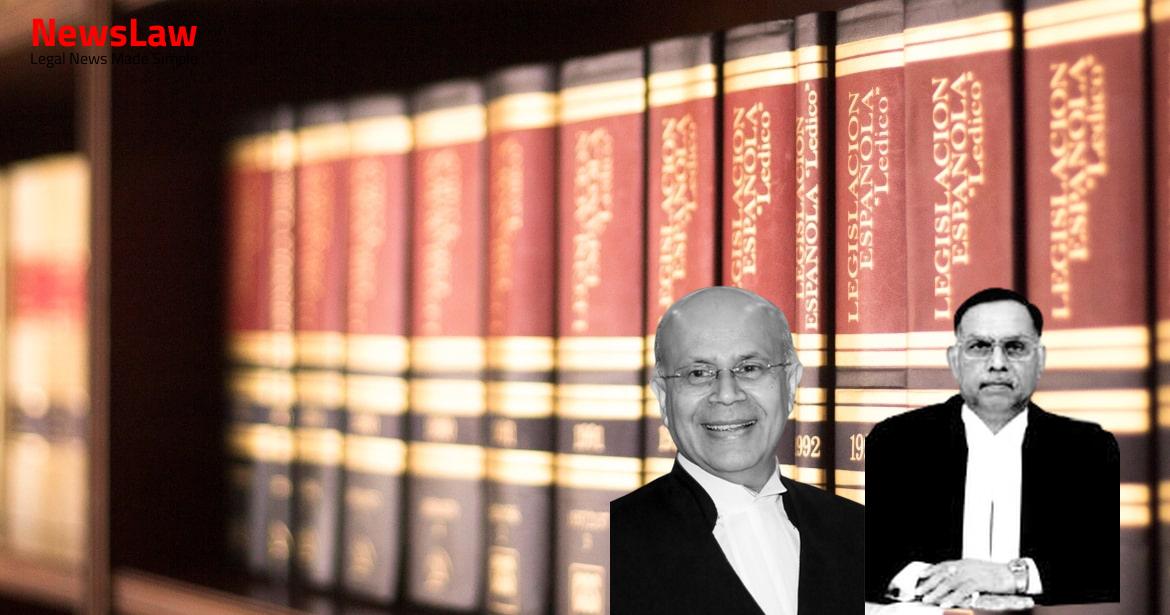Delve into the intricate realm of judicial discretion in bail decisions, a critical aspect of the legal system. The considerations involving the nature of the offense, quality of evidence, and the accused’s previous record are vital in determining bail. This case summary highlights the importance of reasoned decisions and adherence to legal precedents in balancing societal interests and individual rights within the judicial process.
Facts
- The High Court directed to release respondent no.2 on bail in connection with FIR registered for serious offences including murder and criminal conspiracy.
- The High Court’s decision to grant bail was based on the consideration that the prosecution case relied on circumstantial evidence and the applicant had deep roots in society, indicating no risk of fleeing or tampering with evidence.
- The father of the deceased has appealed against the High Court’s order, expressing dissatisfaction with the decision to release the accused on bail.
- Sevantibhai Ranchhodji Tank lodged the FIR initially for lesser offences based on a false story narrated by respondent no.2
- Investigation revealed a criminal conspiracy by respondent no.2 to kill his wife in collusion with others
- Application made to add more serious offences under IPC based on evidence and call details analysis
- Incident took place when respondent no.2 and his wife were hit by a speeding car and the car fled away
- Charges of murder, criminal conspiracy, and abetment to the crime were brought against respondent no.2 and co-accused
- Bail application was rejected by the Additional Sessions Judge
- Respondent no.2 filed a bail application before the High Court of Gujarat
Also Read: Ruling on Circumstantial Evidence in Murder Case
Arguments
- The High Court did not consider the material collected during the investigation or the gravity of the offense in releasing respondent no.2 on bail.
- The reasons provided by the High Court for granting bail were insufficient, merely stating it was a case of circumstantial evidence.
- The petitioner argues that the High Court’s decision goes against established legal precedents as cited in specific cases like Ramesh Bhavan Rathod v. Vishanbhai Hirabhai Makwana and Bhoopendra Singh v. State of Rajasthan.
- The petitioner’s counsel strongly asserts that the High Court’s bail decision was a serious error in the circumstances of the case.
- The Investigating Officer collected material to complete the chain of events and found that respondent no.2 hatched a criminal conspiracy to kill his wife for monetary benefits.
- Call details show respondent no.2 and co-accused were in touch before the incident, supporting the conspiracy theory.
- Respondent no.2 and co-accused have been charge-sheeted for offences under Sections 302 and 120(B) IPC.
- Opposing counsel argues that custodial interrogation is not required as charge-sheet has been filed.
- High Court’s decision to release respondent no.2 on bail is supported by opposing counsel due to completion of investigation and reliance on circumstantial evidence.
- It was revealed during the investigation that respondent no.2 was in financial difficulty and had taken out a joint insurance policy with his wife for Rs. 60 lakhs.
Also Read: Challenging Legal Presumptions in Negotiable Instrument Cases
Analysis
- The High Court failed to consider the material evidence collected during the investigation, leading to the release of the accused on bail.
- The High Court did not take into account the criminal antecedents of the accused, a significant safeguard in ensuring judicious exercise of discretion.
- The duty to record reasons when granting bail is crucial for judicial scrutiny and must be done even in cases of circumstantial evidence.
- The serious nature of the offence, including hatching a conspiracy to kill his wife, should have precluded the accused’s release on bail.
- The High Court’s decision lacked adequate reasoning and did not address the evidence from the charge-sheet.
- The accused’s societal status or lack of flight risk cannot justify bail in an offence as grave as conspiracy to commit murder.
- Legal precedents highlight factors such as charge nature, evidence, potential punishment, and likelihood of interference with justice in bail decisions.
- Antecedents of the accused, especially ones involving serious crimes, should be considered to prevent future criminal acts while on bail.
- The Court does not normally interfere with High Court’s bail orders unless passed mechanically.
- Judiciary expected to be alert while granting bail, emphasizing on judicious discretion.
- Brief reasons are to be given while granting bail, without delving into detailed evaluation of facts.
- Bail cannot be granted as a matter of course, must be accompanied by cogent reasoning.
- Considerations for granting bail include nature of offense, societal placement of accused, and other circumstances.
- Court is required to indicate prima facie reasons justifying the grant of bail.
- Grant of bail is a matter of judicial discretion and must be exercised judiciously with brief reasons provided.
- Various aspects to be considered while granting bail include nature of accusations, evidence, character of accused, and larger interests of public.
- Relevant considerations for granting bail include seriousness of the offense, character of evidence, and likelihood of accused fleeing or tampering.
- The High Court did not consider the parameters for releasing the accused on bail in a serious offence of murder and conspiracy to kill his wife.
- The impugned order releasing respondent no.2 needs to be quashed and set aside.
- The observations in the judgment are solely for the bail decision; the trial Court will proceed with the trial based on evidence presented by both sides.
Also Read: Legal Analysis Critique in High Court’s Quashing Order
Decision
- Present appeal allowed
- Impugned judgment and order quashed and set aside
- Respondent no.2 directed to surrender within one week
Case Title: ISHWARJI NAGAJI MALI Vs. THE STATE OF GUJARAT (2022 INSC 57)
Case Number: Crl.A. No.-000070-000070 / 2022



